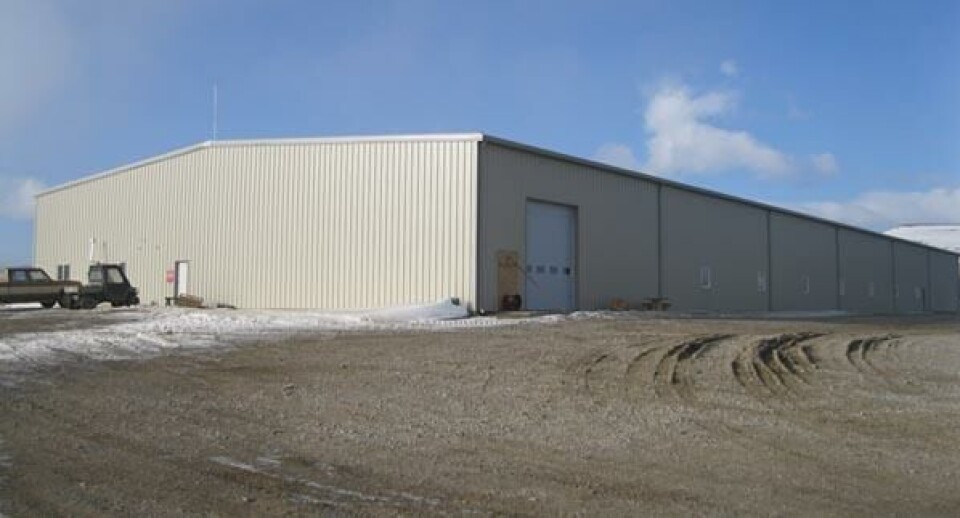
Montana Colony raising Coho salmon
During the recent Seafood Summit in Vancouver, B.C. Washington-based Per Heggelund told an audience that his company AquaSeed was working with some Hutterite Colonies in the development of additional production capacity for freshwater produced Coho salmon under the label “SweetSpring Salmon” and using technology developed in British Columbia. In an article this week in the Montana- based Choteau Acantha, reporter and photographer Nancy Thornton provides more details in an article from which the following segments were selected ;
With the arrival of 10,000 specially-bred Coho salmon eggs last December, Miller Hutterite Colony south of Bynum began operation of the first private, commercial salmon farm in the state using cutting-edge filtration technology that recirculates 99 percent of the groundwater used in the fish tanks. The sustainable farming project, three years in the making, expects by next spring to produce Coho salmon weighing 6.6 pounds each that the colony personnel will process on site either as fillets or head-on-gutted whole fish to be shipped to the West Coast for sale under the label, SweetSpring Salmon. David Wipf, the colony’s spokesman and secretary/treasurer, provided an overview last week of the project being developed under the enterprise, Teton Fisheries, L.L.C., with colony resident Steven Hofer appointed the salmon plant manager. “Aquaculture is the fastest growing segment in the farming industry,” Wipf said. After it suspended pig farming (Midway Colony south of Conrad continues that enterprise), Miller Colony began researching other agricultural businesses that would provide income, Wipf said. Envirotech Ag Systems of Winnipeg, Manitoba, that provides livestock-raising services to more than 40 Hutterite colonies in the United States, introduced the Miller Colony research team to AquaSeed Corp. of Rochester, Wash., a global leader of Pacific salmon conservation and a supplier of domesticated Pacific salmon seed stocks to salmon farms worldwide. SweetSpring Salmon, an affiliate of AquaSeed, began limited distribution to food markets of the cultivated salmon in the Pacific Northwest last year, and during that time, the colony’s research team began talks with AquaSeed about the possibility of developing a freshwater salmon farm in Montana. Added to that development, Holder Timmons Engineering L.L.C. of Ithaca, N.Y. and Courtenay, B.C., had in recent years developed a patented water biofilter that is capable of removing waste and carbon dioxide and adding oxygen, among other things, as part of a closed-container recirculating system. Wipf said the colony worked with company owner and fish biologist John Holder who developed the business plan and designed a state-of-the-art recirculating aquaculture system to raise Coho salmon at the colony. “Ten, even five, years ago this would not have been possible,” Wipf said of the evolving technology. Miller Colony garnered a number of investors for the land-based fish farm in December 2009, but Wipf declined to give the cost of the venture except to say it was more than $1 million. Teton Fisheries L.L.C. “took the plunge” to proceed in March 2010, and started construction in July 2010. The “eyed” eggs (eggs that have developed to the point that their eyes are visible) arrived on Dec. 17, 2010, and, as of last week, weigh about 2.5 grams each. AquaSeed also supplies the colony with a custom fish food that contains a minimum of fishmeal. Wipf said the company’s goal is to remove all fish from the fish food as part of a sustainable model, and he predicted that someday a local feed mill might produce the fish food. At the large metal building that contains the colony’s hatchery, work continues on installing the larger filtration units and water tanks that will soon hold the juvenile fish. For now, Hofer works full-time at maintaining the growing fry, Wipf said. The colony expects to have two full-time and four part-time workers dedicated to salmon raising and processing. “We have a model, but need to work through the whole process,” Wipf said, adding that by next year, the colony hopes to sell salmon fillets locally, just as it does its dairy and vegetable products, and its poultry, sheep and beef cattle.























































